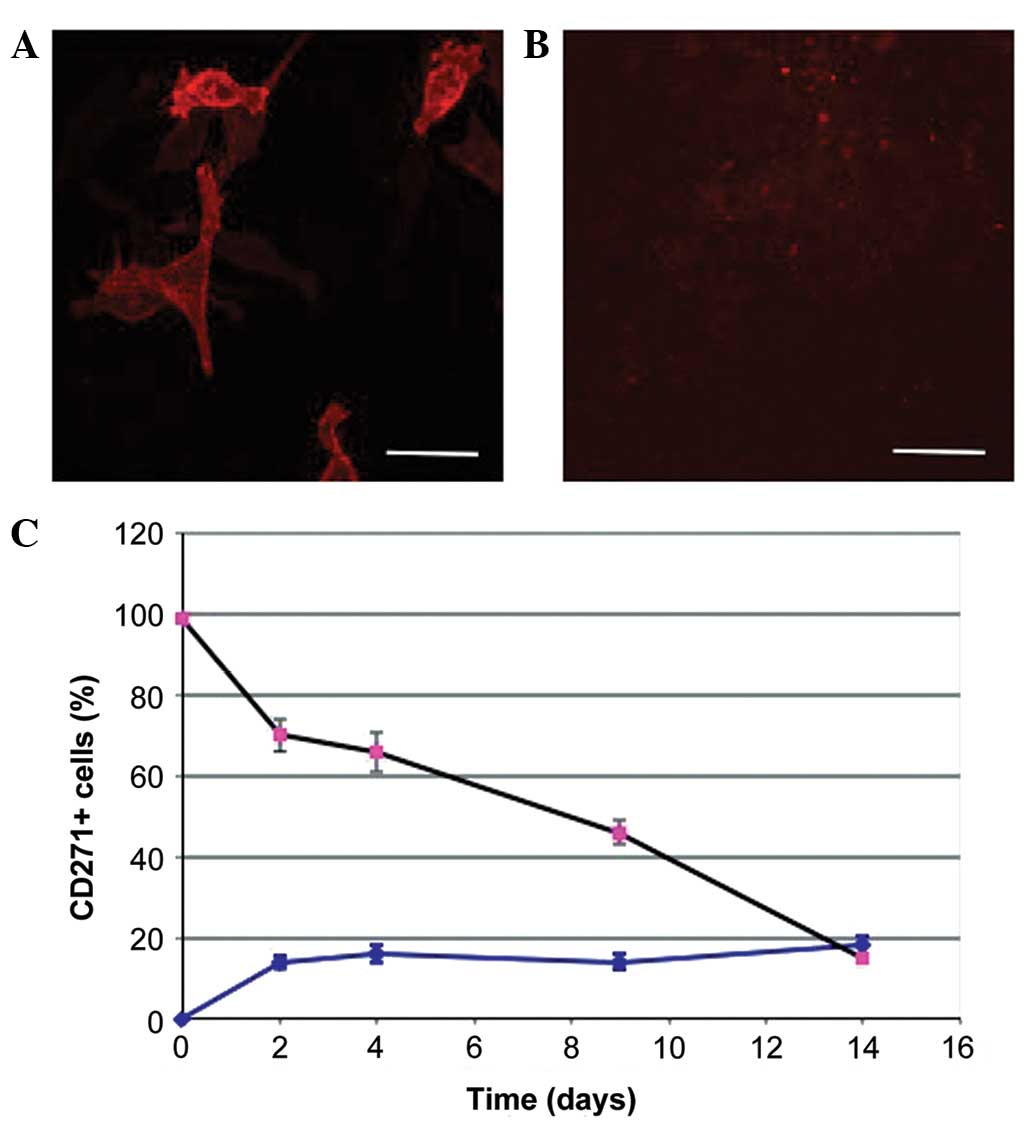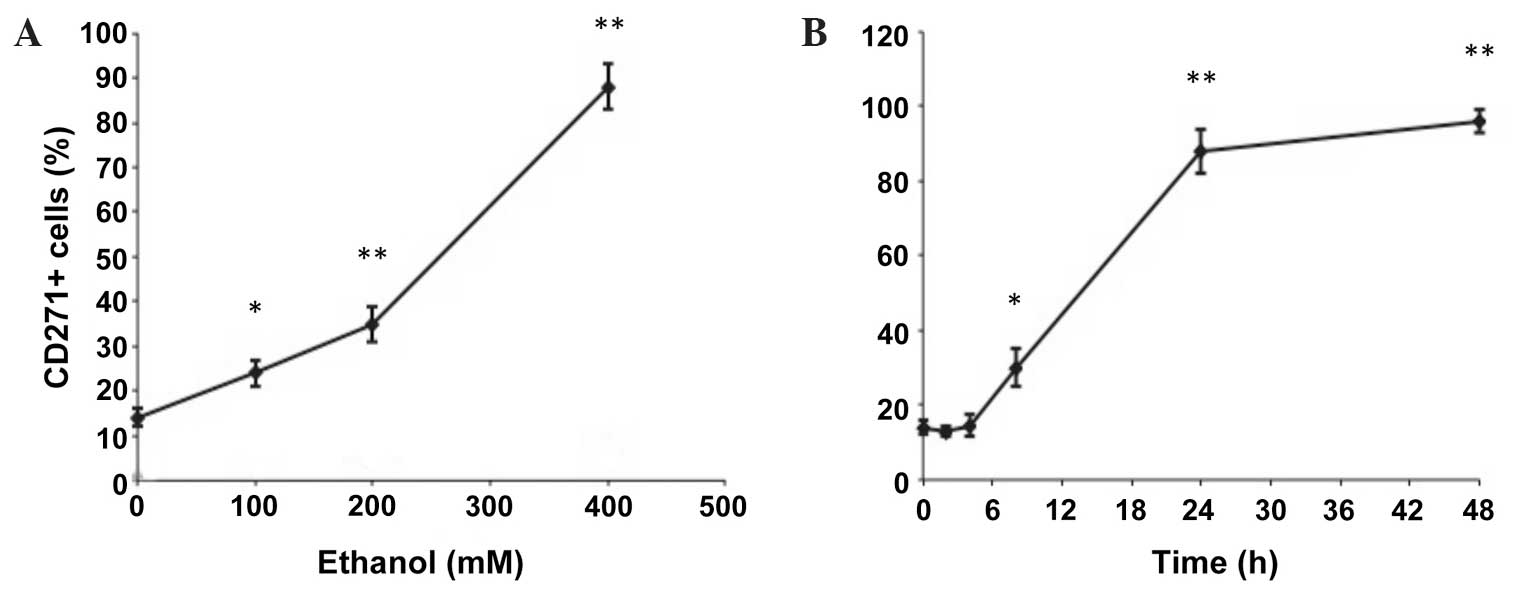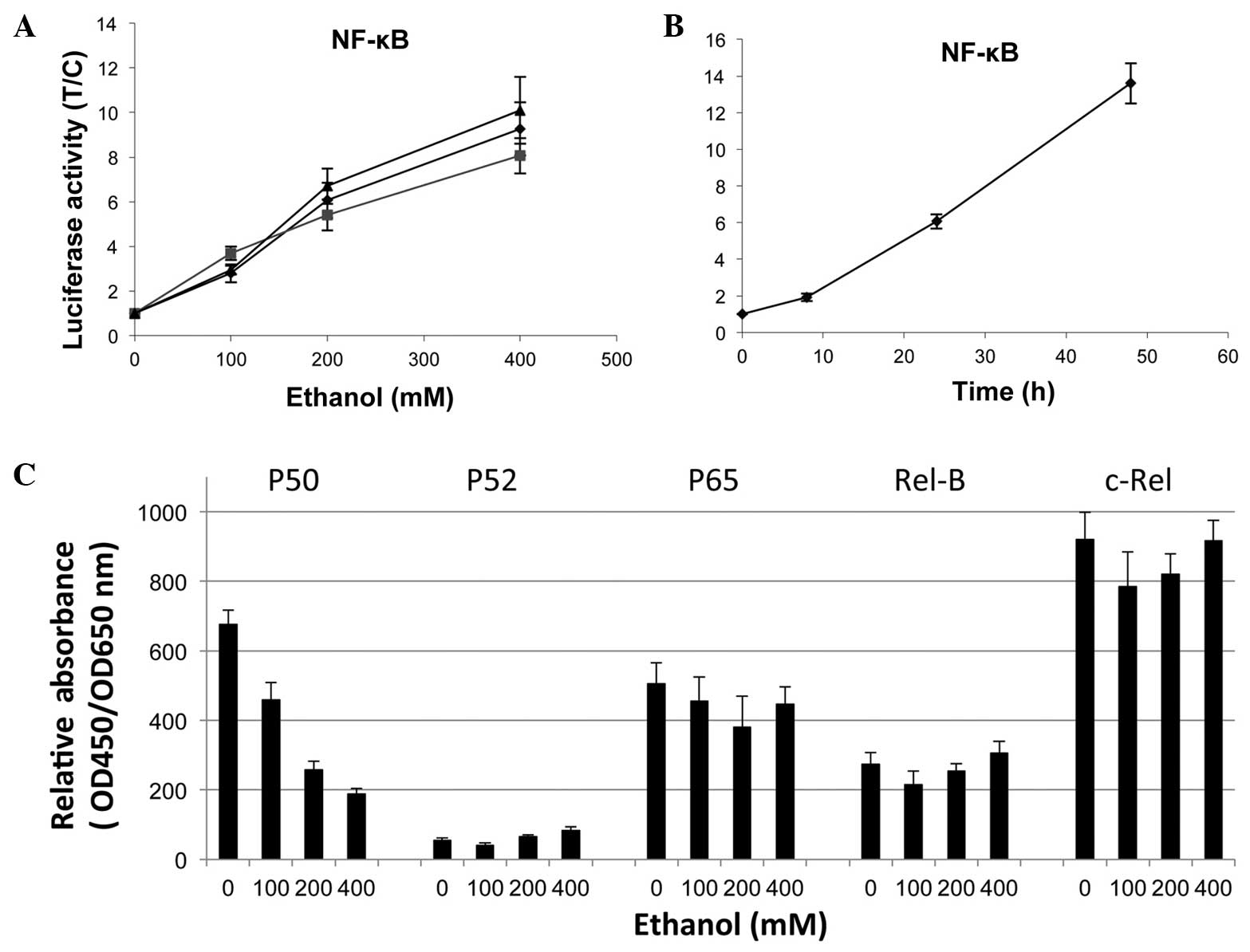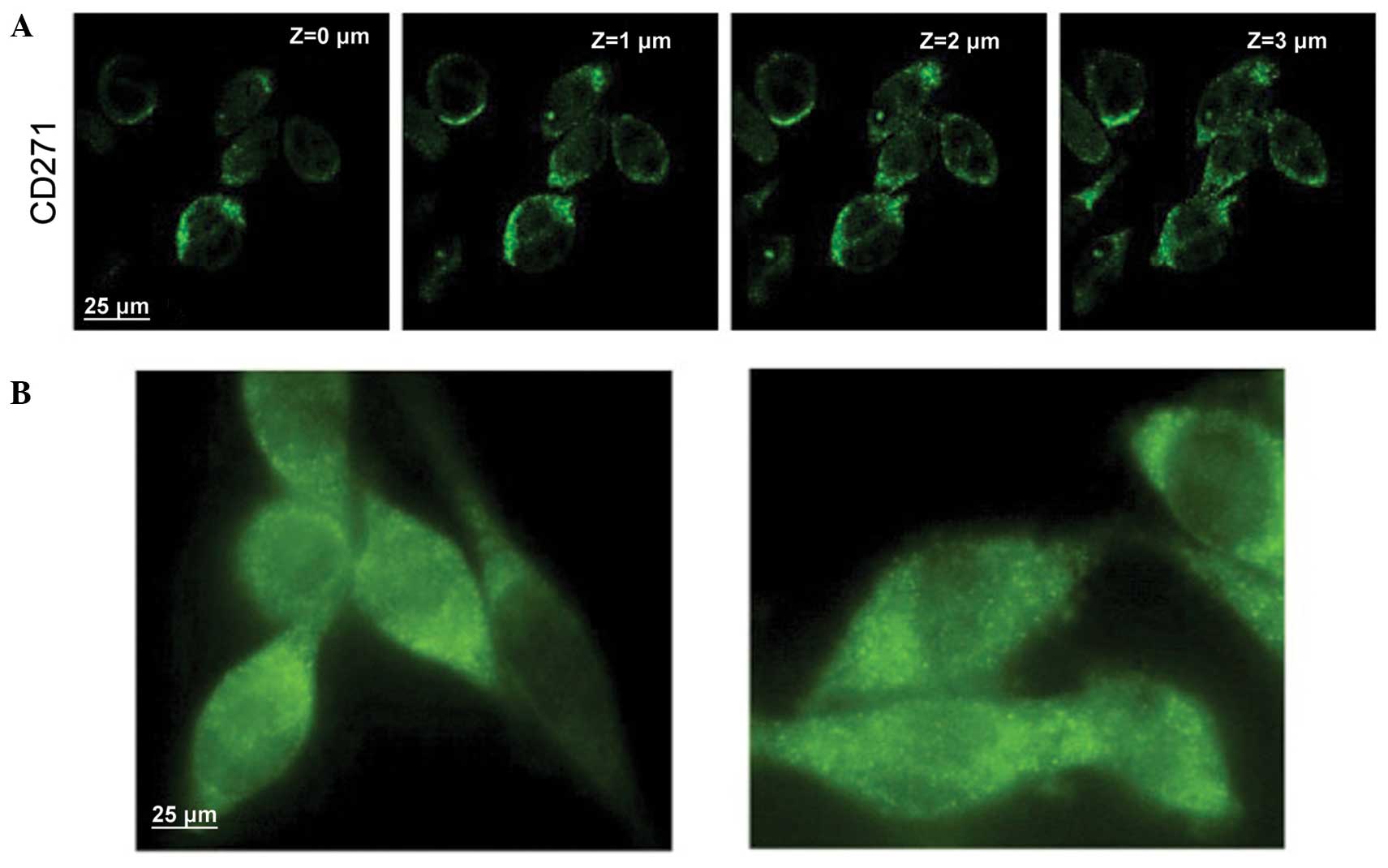|
1
|
Siegel R, Naishadham D and Jemal A: Cancer
statistics, 2013. CA Cancer J Clin. 63:11–30. 2013. View Article : Google Scholar : PubMed/NCBI
|
|
2
|
Pelucchi C, Tramacere I, Boffetta P, Negri
E and La Vecchia C: Alcohol consumption and cancer risk. Nutr
Cancer. 63:983–990. 2011. View Article : Google Scholar : PubMed/NCBI
|
|
3
|
Boffetta P and Hashibe M: Alcohol and
cancer. Lancet Oncol. 7:149–156. 2006. View Article : Google Scholar : PubMed/NCBI
|
|
4
|
Mancebo SE and Wang SQ: Skin cancer: role
of ultraviolet radiation in carcinogenesis. Rev Environ Health.
29:265–273. 2014. View Article : Google Scholar : PubMed/NCBI
|
|
5
|
Gandini S, Sera F, Cattaruzza MS, et al:
Meta-analysis of risk factors for cutaneous melanoma: II. Sun
exposure. Eur J Cancer. 41:45–60. 2005. View Article : Google Scholar : PubMed/NCBI
|
|
6
|
Rota M, Pasquali E, Bellocco R, et al:
Alcohol drinking and cutaneous melanoma risk: a systematic review
and dose-risk meta-analysis. Br J Dermatol. 170:1021–1028. 2014.
View Article : Google Scholar : PubMed/NCBI
|
|
7
|
Chesa PG, Rettig WJ, Thomson TM, Old LJ
and Melamed MR: Immunohistochemical analysis of nerve growth factor
receptor expression in normal and malignant human tissues. J
Histochem Cytochem. 36:383–389. 1988. View Article : Google Scholar : PubMed/NCBI
|
|
8
|
Pietra G, Manzini C, Vitale M, et al:
Natural killer cells kill human melanoma cells with characteristics
of cancer stem cells. Int Immunol. 21:793–801. 2009. View Article : Google Scholar : PubMed/NCBI
|
|
9
|
Boiko AD, Razorenova OV, van de Rijn M, et
al: Human melanoma-initiating cells express neural crest nerve
growth factor receptor CD271. Nature. 466:133–137. 2011. View Article : Google Scholar
|
|
10
|
Civenni G, Walter A, Kobert N, et al:
Human CD271-positive melanoma stem cells associated with metastasis
establish tumor heterogeneity and long-term growth. Cancer Res.
71:3098–3109. 2011. View Article : Google Scholar : PubMed/NCBI
|
|
11
|
Barker PA and Shooter EM: Disruption of
NGF binding to the low affinity neurotrophin receptor p75LNTR
reduces NGF binding to TrkA on PC12 cells. Neuron. 13:203–215.
1994. View Article : Google Scholar : PubMed/NCBI
|
|
12
|
Dobrowsky RT, Werner MH, Castellino AM,
Chao MV and Hannun YA: Activation of the sphingomyelin cycle
through the low-affinity neurotrophin receptor. Science.
265:1596–1599. 1994. View Article : Google Scholar : PubMed/NCBI
|
|
13
|
Shonukan O, Bagayogo I, McCrea P, Chao M
and Hempstead B: Neurotrophin-induced melanoma cell migration is
mediated through the actin-bundling protein fascin. Oncogene.
22:3616–3623. 2003. View Article : Google Scholar : PubMed/NCBI
|
|
14
|
Rappa G, Fodstad O and Lorico A: The stem
cell-associated antigen CD133 (Prominin-1) is a molecular
therapeutic target for metastatic melanoma. Stem Cells.
26:3008–3017. 2008. View Article : Google Scholar : PubMed/NCBI
|
|
15
|
Fodstad O, Kjønniksen I, Aamdal S, Nesland
JM, Boyd MR and Pihl A: Extrapulmonary, tissue-specific metastasis
formation in nude mice injected with FEMX-I human melanoma cells.
Cancer Res. 48:4382–4388. 1988.PubMed/NCBI
|
|
16
|
Schneider CA, Rasband WS and Eliceiri KW:
NIH Image to ImageJ: 25 years of image analysis. Nat Methods.
9:671–675. 2012. View Article : Google Scholar : PubMed/NCBI
|
|
17
|
Secchiero P, Milani D, Gonelli A, et al:
Tumor necrosis factor (TNF)-related apoptosis-inducing ligand
(TRAIL) and TNF-alpha promote the NF-κB-dependent maturation of
normal and leukemic myeloid cells. J Leukoc Biol. 74:223–232. 2003.
View Article : Google Scholar : PubMed/NCBI
|
|
18
|
Bauer NN, Chen YW, Samant RS, Shevde LA
and Fodstad O: Rac1 activity regulates proliferation of aggressive
metastatic melanoma. Exp Cell Res. 313:3832–3839. 2007. View Article : Google Scholar : PubMed/NCBI
|
|
19
|
Anderson DM, Maraskovsky E, Billingsley
WL, et al: A homologue of the TNF receptor and its ligand enhance
T-cell growth and dendritic-cell function. Nature. 390:175–179.
1997. View Article : Google Scholar : PubMed/NCBI
|
|
20
|
Sonenshein GE: Rel/NF-κB transcription
factors and the control of apoptosis. Semin Cancer Biol. 8:113–119.
1997. View Article : Google Scholar : PubMed/NCBI
|
|
21
|
Siebenlist U, Franzoso G and Brown K:
Structure, regulation and function of NF-κB. Annu Rev Cell Biol.
10:405–455. 1994. View Article : Google Scholar : PubMed/NCBI
|
|
22
|
Gukovskaya AS, Mouria M, Gukovsky I, et
al: Ethanol metabolism and transcription factor activation in
pancreatic acinar cells in rats. Gastroenterology. 122:106–118.
2002. View Article : Google Scholar : PubMed/NCBI
|
|
23
|
Huang S, DeGuzman A, Bucana CD and Fidler
IJ: Nuclear factor-κB activity correlates with growth, angiogenesis
and metastasis of human melanoma cells in nude mice. Clin Cancer
Res. 6:2573–2581. 2000.PubMed/NCBI
|
|
24
|
Yang J and Richmond A: Constitutive IκB
kinase activity correlates with nuclear factor-κB activation in
human melanoma cells. Cancer Res. 61:4901–4909. 2001.PubMed/NCBI
|
|
25
|
Kurbanov BM, Fecker LF, Geilen CC, Sterry
W and Eberle J: Resistance of melanoma cells to TRAIL does not
result from upregulation of antiapoptotic proteins by NF-κB but is
related to downregulation of initiator caspases and DR4. Oncogene.
26:3364–3377. 2007. View Article : Google Scholar : PubMed/NCBI
|
|
26
|
Toesca A, Giannetti S and Granato A:
Overexpression of the p75 neurotrophin receptor in the
sensori-motor cortex of rats exposed to ethanol during early
postnatal life. Neurosci Lett. 342:89–92. 2003. View Article : Google Scholar : PubMed/NCBI
|
|
27
|
Cosgaya JM and Shooter EM: Binding of
nerve growth factor to its p75 receptor in stressed cells induces
selective IκB-beta degradation and NF-κB nuclear translocation. J
Neurochem. 79:391–399. 2001. View Article : Google Scholar : PubMed/NCBI
|
|
28
|
Bhakar AL, Roux PP, Lachance C, Kryl D,
Zeindler C and Barker PA: The p75 neurotrophin receptor (p75NTR)
alters tumor necrosis factor-mediated NF-κB activity under
physiological conditions, but direct p75NTR-mediated NF-κB
activation requires cell stress. J Biol Chem. 274:21443–21449.
1999. View Article : Google Scholar : PubMed/NCBI
|
|
29
|
Redmer T, Welte Y, Behrens D, Fichtner I,
Przybilla D, Wruck W, Yaspo ML, Lehrach H, Schäfer R and
Regenbrecht CR: The nerve growth factor receptor CD271 is crucial
to maintain tumorigenicity and stem-like properties of melanoma
cells. PLoS One. 9:e925962014. View Article : Google Scholar : PubMed/NCBI
|
|
30
|
Monzani E, Facchetti F, Galmozzi E,
Corsini E, Benetti A, Cavazzin C, Gritti A, Piccinini A, Porro D,
Santinami M, Invernici G, Parati E, Alessandri G and La Porta CA:
Melanoma contains CD133 and ABCG2 positive cells with enhanced
tumourigenic potential. Eur J Cancer. 43:935–946. 2007. View Article : Google Scholar : PubMed/NCBI
|
|
31
|
Chan MM and Tahan SR: Low-affinity nerve
growth factor receptor (P75 NGFR) as a marker of perineural
invasion in malignant melanomas. J Cutan Pathol. 37:336–343. 2010.
View Article : Google Scholar : PubMed/NCBI
|
|
32
|
Morrison LC, McClelland R, Aiken C,
Bridges M, Liang L, Wang X, Di Curzio D, Del Bigio MR and Taylor
MD: Werbowetski-Ogilvie TE: Deconstruction of medulloblastoma
cellular heterogeneity reveals differences between the most highly
invasive and self-renewing phenotypes. Neoplasia. 15:384–398. 2013.
View Article : Google Scholar : PubMed/NCBI
|


















